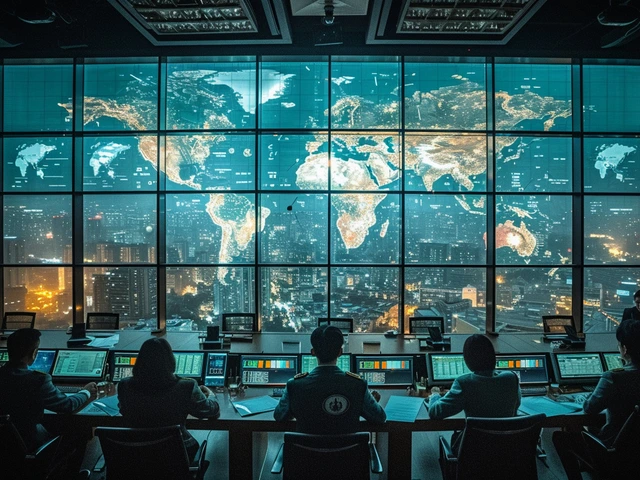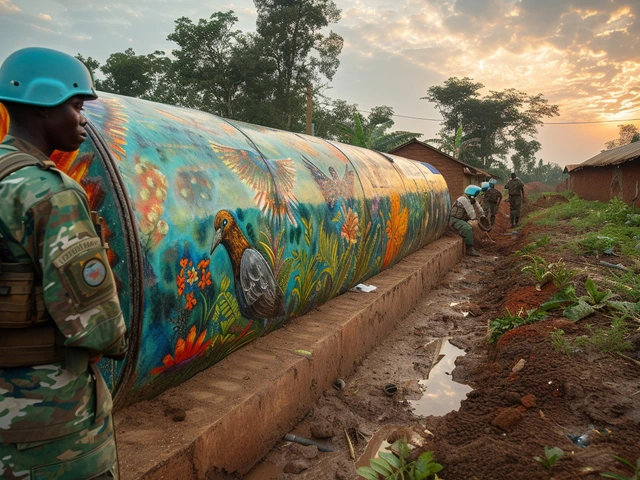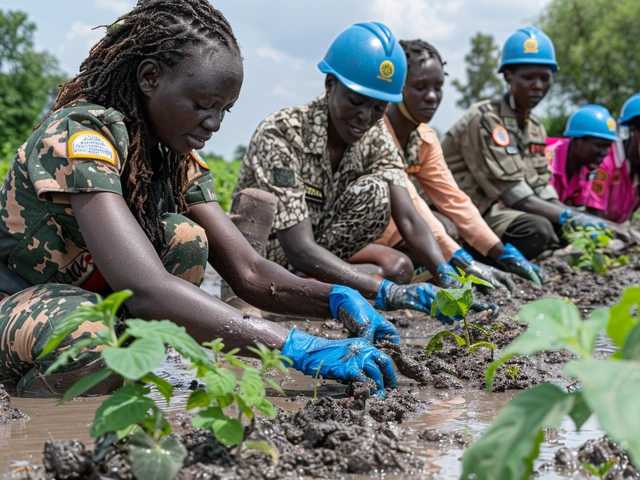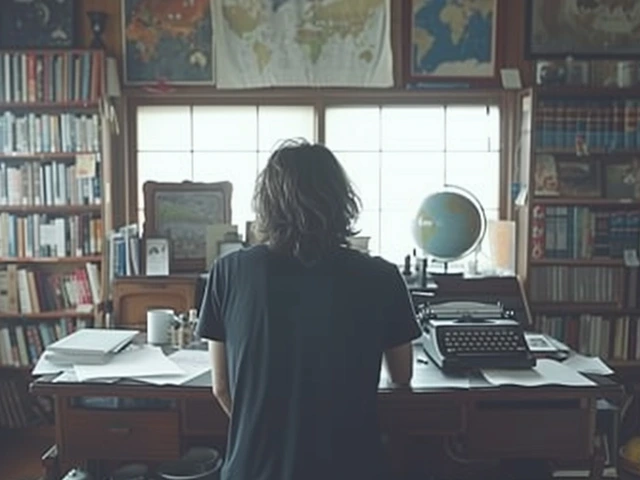Introduction to Global Peacekeeping
In the realm of international affairs, peacekeeping stands as a beacon of hope amidst the chaos of conflict and turmoil. It represents a commitment by the global community to foster peace, stability, and security in regions torn apart by war and strife. Peacekeeping missions, primarily under the auspices of the United Nations (UN), embark on the challenging journey of monitoring ceasefires, protecting civilians, and assisting in the political process with unwavering dedication and resilience. The essence of peacekeeping lies in its unique ability to deploy to the world’s most volatile regions, bringing together troops, police, and civilian personnel from various countries in a unified effort to lay down the foundations of lasting peace.
The Evolution of Peacekeeping Missions
The landscape of international peacekeeping has undergone significant transformations since the inception of the first UN peacekeeping mission in 1948. Over the decades, the scope and complexity of peacekeeping operations have expanded dramatically, evolving from monitoring armistice agreements to addressing multi-dimensional challenges that include ensuring the protection of civilians, supporting the establishment of political and legal frameworks for governance, and facilitating humanitarian aid. This evolution reflects the changing nature of global conflicts and the increasing recognition of peacekeeping as a critical tool for conflict resolution and peacebuilding. Today's missions are more likely than ever to operate in environments where there is no peace to keep, requiring innovative approaches and robust mandates to navigate the intricate web of political, military, and social dynamics.
Principles Guiding Peacekeeping Efforts
At the heart of every peacekeeping mission lie three core principles: consent of the parties, impartiality, and non-use of force except in self-defense and defense of the mandate. These principles are not merely guidelines but the bedrock on which the credibility and effectiveness of peacekeeping efforts stand. Consent ensures that peacekeeping forces are welcomed by all parties involved, reinforcing their legitimacy and bolstering their ability to mediate and assist. Impartiality is crucial for maintaining the trust and confidence of all stakeholders, ensuring that peacekeepers are seen as fair and unbiased arbiters. Lastly, the restrained use of force underlines the commitment to peaceful resolution, emphasizing that peacekeeping is fundamentally different from peace enforcement or military intervention.
Challenges Faced by Peacekeeping Forces
The path of peacekeeping is fraught with challenges, from the complexity of modern conflicts to the political intricacies of international relations. Peacekeepers often find themselves deployed in environments where ceasefires are fragile, governance structures are weak or non-existent, and threats to civilian populations are imminent. The unpredictable nature of these missions demands exceptional adaptability and resilience from peacekeeping personnel. Furthermore, issues such as insufficient resources, limitations of mandates, and the need for greater international support and cooperation persistently test the limits of peacekeeping operations. Navigating these hurdles, while striving to protect the vulnerable and restore stability, underscores the remarkable commitment and courage of these silent warriors of peace.
The Impact of Peacekeeping on Global Peace
The contribution of peacekeeping missions to global peace and security cannot be overstated. By providing a buffer between conflicting parties, supporting political processes, and aiding in the reconstruction of war-torn societies, peacekeepers play an instrumental role in breaking the cycle of violence and laying the groundwork for sustainable peace. Numerous studies and empirical evidence suggest that the presence of UN peacekeeping missions significantly reduces the likelihood of renewed conflict and helps maintain peace in the aftermath of civil wars. Moreover, peacekeeping efforts contribute to the promotion of human rights, the protection of civilians, and the empowerment of women and marginalized communities in post-conflict settings, thus addressing some of the root causes of conflict and instability.
Personal Stories of Bravery and Sacrifice
Behind the blue helmets and the official mandates are the individual stories of bravery, sacrifice, and humanity that breathe life into peacekeeping missions. These stories, often untold, reflect the personal experiences of men and women who serve far from their homes, risking their lives in the pursuit of peace. Whether it is mediating between hostile parties, providing medical care in remote locations, or rebuilding infrastructure, the dedication of peacekeeping personnel is a testament to their unwavering belief in the cause of peace. Their contributions, both big and small, collectively make a profound impact on the lives of countless individuals and communities around the globe.
The Future of Peacekeeping
As the world navigates through an era of unprecedented challenges, the future of peacekeeping is poised at a critical juncture. The rise of non-state actors, the proliferation of technology, and the increasing complexity of conflicts necessitate a reevaluation of peacekeeping strategies and approaches. Adaptation and innovation will be key to enhancing the effectiveness of future missions, incorporating lessons learned from past experiences, and leveraging advancements in technology and data analysis. The global community must also renew its commitment to providing adequate resources, political support, and strategic guidance to ensure that peacekeeping remains a viable and effective instrument for maintaining international peace and security.
Key Takeaways
In conclusion, peacekeeping serves as a vital bridge between conflict and peace, embodying the collective aspiration of the international community to foster a more stable and peaceful world. Despite the myriad challenges and complexities, the dedication and sacrifices of peacekeeping personnel highlight humanity’s capacity for compassion and resilience in the face of adversity. As we move forward, it is essential to support and strengthen these silent warriors of peace, recognizing their indispensable role in not only preventing the resurgence of conflict but also in paving the way for lasting peace and development.








Write a comment